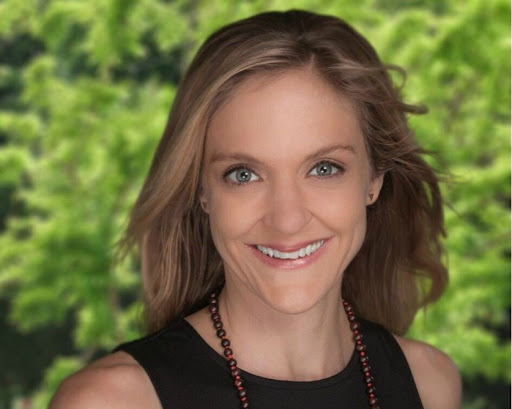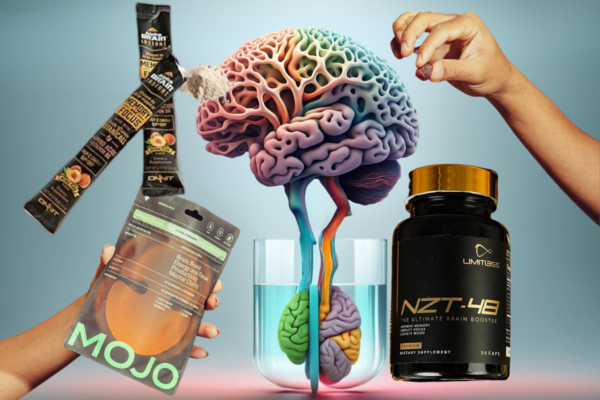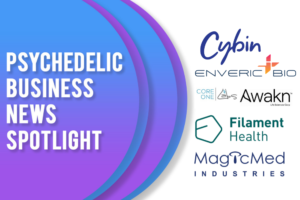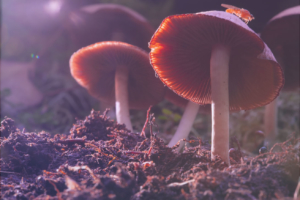
The study of the mind had always been a passion for Kelli Foulkrod. It led her to become a psychotherapist. But when she discovered yoga, “it became my ‘gateway drug’ into the mind/body connection, and allowed me to understand how the body holds psychological traumas physically,” she says. It seemed a natural progression to combine the two practices.
But in time, she longed to discover more ways to connect the spirit and the soul in treating mental illness. That seeking led her to study and apprentice in the healing arts and shamanistic traditions.
“The energy practices were the missing piece to the holistic approach to healing the human psyche,” she says. “What I had discovered working in the mental health field in America for many years was that we hadn’t really been able to offer sustainable healing, but instead simply compartmentalized symptom management.” These limitations in mental health treatments led her to study psychedelic-assisted psychotherapy modalities.
Today, Foulkrod is a transpersonal psychotherapist, trauma-informed yoga teacher, ceremonialist, and psychedelic integration therapist. One of Psychedelic Spotlight’s newest board members, Foulkrod is also founder of Austin, Texas-based The Organic Mental Health Center, and on the brink of launching Earth Pharma, a nonprofit collaboration with regenerative and organic farmers to bring holistic trauma healing to underserved communities.
She took some time out of her busy schedule to tell us more about her work and the passion that drives her.
Psychedelic Spotlight: You call yoga your “gateway drug” into mind/body connection. Tell me more about your philosophy on the importance of yoga in mental health.
Kelli Foulkrod: Psychology is a dying art if it only includes the Ego. In order to truly move through and let go of trauma, the body must be involved in the mental health treatment process. Long-term healing cannot happen with the mind trying to heal the mind. If we view the physical body as a symbolic representation of the unconscious mind, then one can unlock the deeper levels of the mind for long lasting transformation.
PS: Can you explain your role as a ceremonialist?
KF: The training and apprenticeship I have been involved with for the past eight years within Curanderismo [traditional healing using plants] has by far been the most profound learning for my approach to healing.
As an initiate of the Pachakuti Mesa Tradition, I have learned the energetic art of ceremony facilitation. Ceremony and rituals have been used for thousands of years as a way for humans to honor the Earth and develop a reciprocal relationship with nature. Ceremonies are not solely just for working with sacred plants. Ceremony creates a sacred container to recognize the seasons, the elements, rites of passages, and offer soul level healing.
PS: According to the website, the Organic Mental Health Center offers ketamine-assisted psychotherapy “when appropriate.” Please explain how you determine whether this treatment is appropriate and why such measures are taken.
KF: The recent rise of ketamine clinics can lead some to perceive that ketamine is a “one-size-fits-all” magic bullet cure. I believe there are no magic bullets when it comes to healing, and that real effort is required for transformation. I also do not believe that psychedelics are appropriate for everyone, whether that is for recreational or healing purposes.
There are many cases where ketamine is not an appropriate choice for healing. Ketamine is a dissociative psychedelic, therefore people with the primary psychological defense of dissociation (common in most trauma survivors) don’t usually heal by reinforcing dissociation. Individuals with low ego strength are also not a good candidate for ego dissolution, and should first work to heal some of the trauma layers before delving deeper into the unconscious realms.
Sadly, with the boom in ketamine clinics also comes clinics that are focused solely on profits, instead of proper preparation (which includes screening and thorough intake assessments) and integration. This means that some people will be offered empty claims for healing, but instead just get another medicalized approach to symptom management.
PS: Speaking of psychedelic integration, your clinic also offers this specialized therapy. Explain why psychedelic intervention is important for someone using hallucinogens for emotional healing.
KF: Proper preparation and adequate integration are more important than the peak experience, in my opinion. Working with an outside perspective can be very helpful in terms of unconscious material that holds blind spots within the psyche. There is a reason certain experiences get relegated into the unconscious mind, in an effort to psychologically defend against those things we would rather forget. Therefore, having a trusted human to reflect deep experiences with the unconscious mind is vital for transformation with psychedelics.
I have seen people in dis-integrated states psychologically due to improper preparation and integration on the facilitators part. It can be very destabilizing for an individual to ease back into daily life without fully putting the pieces of the unconscious mind back together.
PS: It must be empowering to witness someone’s healing. Is there a success story or scenario with yourself or a client/patient that you can share?
KF: The work I do allows me to witness the ability of the human psyche to heal itself. Once trauma is safely discharged from the nervous system, the higher self knows exactly what is needed for healing due to homeostasis in the body.
There is a cultural misconception that healing happens outside of the individual, by a doctor, therapist, healer, medication, substance. The truth is that healing happens from inside of you, and only you are able to access your innate healing capacity; no one can do the work for you, because you are the only one inside your unconscious mind.
Transformational healing from complex trauma is possible, and I witness this process quite frequently as individuals become empowered to heal themselves.
PS: Your biography says that you are “actively unlearning internalized white supremacy” and working “toward social justice in the mental health industry.” Please tell me why these are passions/goals for you.
KF: Working in the mental health industry for 20 years, it is clear that psychiatry and psychology were established on institutionalized racism. The history of psychiatry unfortunately has some disturbing examples of experimentation and abuse of power with BIPOC [black, indigenous, and people of color]; the history of psychiatry is rarely taught in graduate level mental health programs.
Statistics today show great racial disparities in terms of access to mental healthcare, forced psychiatric hospitalizations, coercion with medications and treatments, and more cases of abuse of power in BIPOC patients. I believe that all humans deserve equal access to holistic mental health treatments, regardless of income. While that may be a radical idea to some, I do not believe that transformational healing is only available to the elite majority.
PS: Your website mentions you plans of co-creating a residential mental health farm to serve as an alternative to traditional inpatient psychiatric hospitals for underserved communities. Please tell us more about this vision.
KF: Having worked in several inpatient psychiatric hospitals, I quickly learned that a medicalized approach to mental health only leads to symptom management. I witnessed patients coming into the hospital for crisis stabilization, receiving prescriptions for multiple psychotropic drugs and then being released home, only to repeat this cycle again in the next few weeks. The actual institutions of most inpatient mental health settings are not actually conducive to healing; most institutions do not allow patients to go outside and access sunlight and provide foods that are not conducive to gut health.
Being a yoga teacher for many years, I noticed the trend of wealthy white women being the majority to access holistic healing modalities and I began to wonder how we might create more equitable access to holistic mental health treatments. I believe that we can collaborate across disciplines and fields to create a business structure focused on the social good instead of profits.
Through grants, investments, donations, and a working farm as a revenue stream we will be able to offer sliding scale holistic trauma healing in a rustic retreat setting. The main focus of the healing is the farm milieu, which allows for people to reconnect with the Earth while healing within a community. The new nonprofit we are building, Earth Pharma, will be the first business arm of the co-operative business structure. We are currently looking to begin collaboration with regenerative and organic farmers to work with 75 acres of farmland just outside of Austin, Texas.
PS: Finally, is there anything else about yourself or the Organic Mental Health Center you’d like for us to know?
KF: The organic mental health center believes that trauma is at the root of all mental health suffering and that negative mental health experiences are not a disease. We are incredibly excited to begin the launch of Earth Pharma, Inc and look forward to participating in the mental healthcare paradigm shift!
Listen to Kelli’s interview on the Psychedelic Spotlight Podcast, here.





